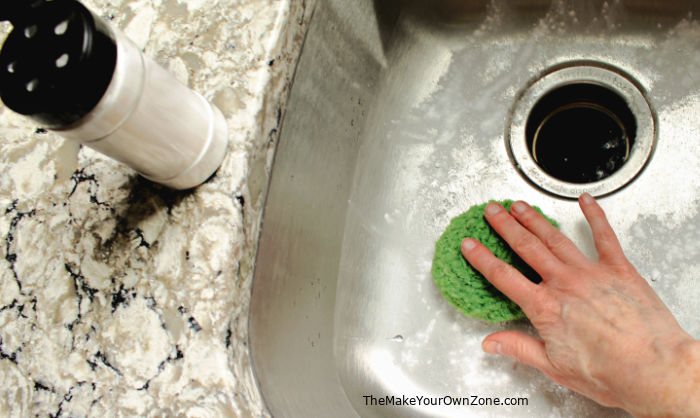
Winter Kitchen Revival: DIY All-Natural Scouring Powders for a Sparkling Clean Home
Winter's embrace often means more time spent indoors, and for many homesteaders, that translates to a bustling kitchen! From hearty stews simmering on the wood stove to the lingering remnants of holiday feasts – baked-on gravy and sugary spills become unwelcome kitchen fixtures. But fear not! We can combat the winter kitchen woes with sustainable cleaning practices. Embrace the satisfaction of using homemade, all-natural scouring powders for a sparkling clean home, free from harsh chemicals and full of the goodness of the earth.
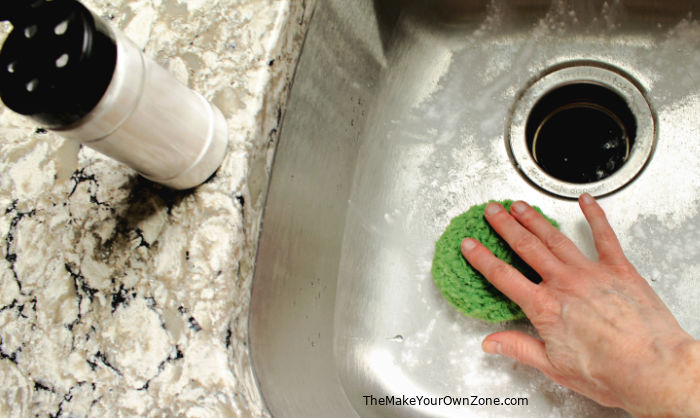
Recipe: All-Natural Kitchen Scouring Powder
Here's a simple and effective recipe for an all-natural kitchen scouring powder that will leave your home sparkling and smelling fresh:
Ingredients:
- 1 cup baking soda (Arm & Hammer brand)
- 1/2 cup fine sea salt (Morton brand)
- 1/4 cup dried lemon peel powder (homemade)
- 15 drops tea tree essential oil (Melaleuca brand)
- 10 drops lemon essential oil (Young Living brand)
Instructions:
- Combine all ingredients in a wide-mouth glass jar (Ball Mason Jar, pint size).
- Secure the lid tightly and shake vigorously for 30 seconds to ensure the essential oils are evenly distributed.
- Store in an airtight container in a cool, dry place, away from direct sunlight. Label the jar with a handwritten label using a calligraphy pen.
Making Your Own Lemon Peel Powder:
Don't toss those lemon peels! Transform them into a powerful cleaning agent. Zest 3-4 organic lemons, spreading the zest evenly on a baking sheet. Dry completely in a low oven at 170°F for 2-3 hours, or use a dehydrator. Once completely dry and brittle, grind the zest into a fine powder using a spice grinder. The result is a bright yellow, fragrant powder ready to boost your scouring powder's cleaning power.
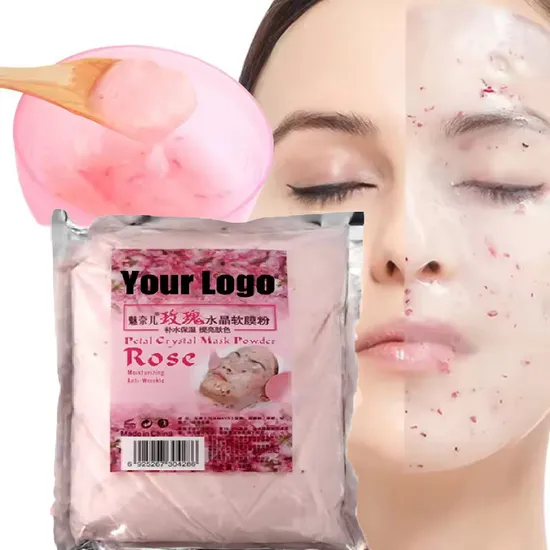
Cleaning Different Kitchen Surfaces
This homemade scouring powder is versatile and can be used to clean a variety of kitchen surfaces. Here’s how to use it effectively:
Ceramic Sinks
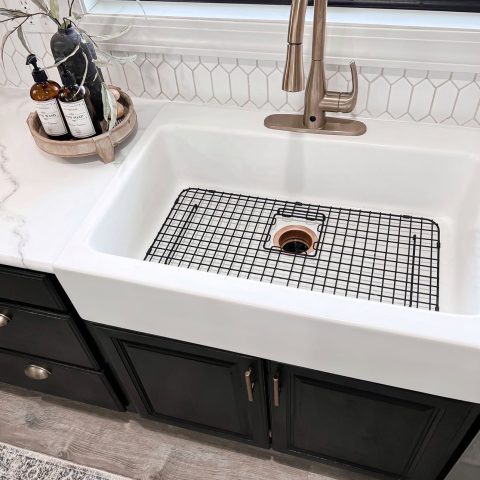
- Wet the entire white farmhouse style ceramic sink surface with warm water, ensuring all areas are damp.
- Sprinkle approximately 1-2 tablespoons of scouring powder evenly onto the wet surface.
- Use a bamboo scrub brush to gently scrub in a circular motion, paying special attention to stained areas around the drain. Notice the natural bamboo grain and bristle texture as you work.
- Rinse thoroughly with warm water until all traces of the powder are gone.
- Dry with a reusable microfiber cloth (light grey color), leaving the sink sparkling.
Stainless Steel Appliances
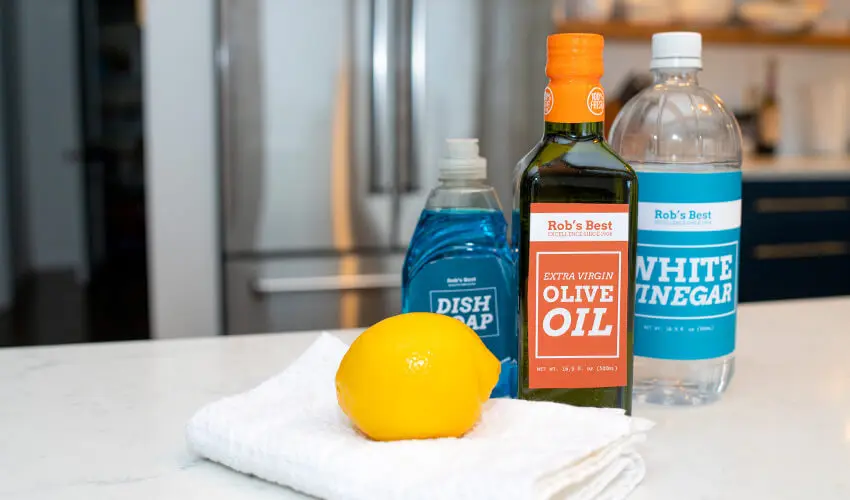
- Make a paste of scouring powder and water in a small vintage ceramic mixing bowl. Use approximately 1 tablespoon of powder to ½ tablespoon of water.
- Apply the paste to the brushed stainless steel finish appliance surface with a soft cloth.
- Use a copper scrubber to gently scrub in the direction of the grain, using light pressure to avoid scratches. Observe the metallic sheen as you scrub.
- Rinse thoroughly with warm water, removing all residue.
- Dry immediately with a reusable microfiber cloth (dark blue color).
- Caution: Always test on a small, inconspicuous area first, such as behind the refrigerator, to ensure it doesn't scratch the surface.
Butcher Block Countertops
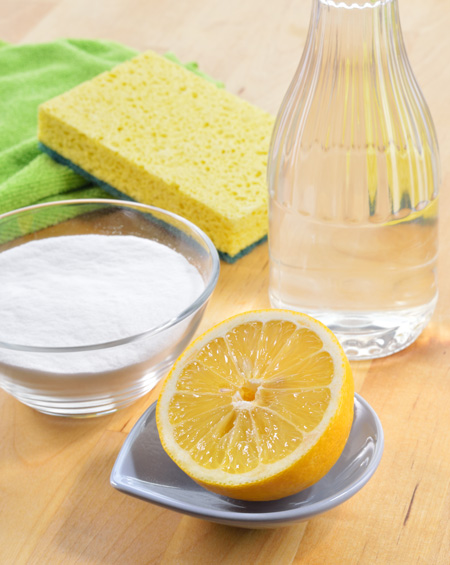
- Sprinkle a small amount (approx. 1 teaspoon) of scouring powder onto a damp butcher block countertop. The maple surface shows its well-worn character.
- Use a bamboo scrub brush to gently scrub in the direction of the wood grain, using short, even strokes.
- Rinse with a damp cloth (a soft cotton dishcloth), ensuring no scouring powder remains in the grain.
- Dry immediately with a clean, absorbent towel (linen, natural color).
- Follow up immediately with a food-safe oil (mineral oil or beeswax) to re-seal the wood. Notice the sheen and the protectiveness of the oil.
Tackling Winter Kitchen Challenges
Winter brings its own set of kitchen cleaning challenges. Here's how to tackle them with your homemade scouring powder:
- Dried-On Food: For baked-on casserole or other stubborn messes, let the scouring powder sit on the dried food for 5-10 minutes before scrubbing. For particularly stubborn spots, create a thick paste and let it sit for up to 30 minutes before gently scrubbing.
- Grease Buildup: The area around the stovetop often bears the brunt of winter cooking. Use hot water and a more generous amount of scouring powder when cleaning greasy surfaces. Add a squeeze of lemon juice to the paste for added degreasing power. Regular cleaning once a week prevents heavy buildup.
The Sustainable Homesteading Connection
Embracing this natural kitchen cleaning solution aligns perfectly with the homesteading philosophy. Baking soda acts as a natural deodorizer and gentle cleaner. Sea salt offers a gentle abrasive alternative to microplastics. Lemon peel is a potent degreaser, while tea tree and lemon essential oils are natural disinfectants with antibacterial properties. By making your own homemade scouring powder, you reduce plastic waste from store-bought cleaners and reliance on harsh, petroleum-based chemicals. And don't forget to compost the lemon peels after zesting to further reduce waste and enrich your garden soil! It is a win-win eco-friendly cleaning product.
Safety Precautions
Always test the scouring powder on a small, inconspicuous area first. Avoid using on delicate surfaces such as marble, granite, or painted finishes. Wear gloves if you have sensitive skin. Keep out of reach of children. Do not ingest. Store in a clearly labeled container.
Revive your winter kitchen with the power of nature! Ditch the harsh chemicals and embrace the simple, satisfying act of creating your own all-natural scouring powder.
Share your before-and-after photos of your sparkling winter kitchen using #BHHKitchenClean on social media! Tag us in your photos for a chance to be featured!